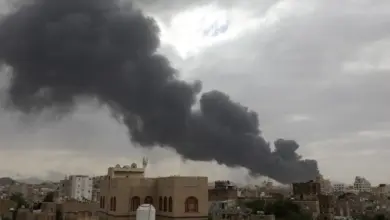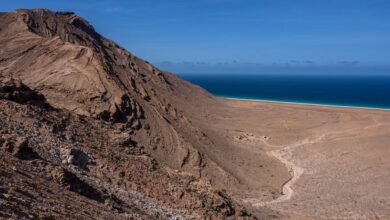Sanaa–Yemen on Saturday set a timetable for Shiite rebels to implement its terms for a ceasefire in their six-year-old uprising in northern mountains, as 28 deaths were reported in fresh clashes.
The details of the timetable have been transmitted to rebel leader Abdul Malak al-Huthi through a go-between, presidential adviser Abdul Karim al-Ariani told reporters in the capital Sanaa.
"After the agreement by the Huthis to the six conditions, the high security committee has drawn up an implementation timetable which will be overseen by five parliamentary committees," Ariani said.
He said representatives of the Zaidi Shia rebels, known as Huthis, would be co-opted onto the five committees.
"If they agree to it and sign it, the war will end immediately," he said.
At the end of last month, the rebels offered to accept the five conditions originally set by the government for a ceasefire.
Those were a withdrawal from government buildings, reopening of roads in the north, return of weapons seized from security services, freeing of all prisoners, including Saudis, and abandoning military posts in the mountains.
But the government rejected the offer, saying the rebels also needed to accept a sixth key condition–a promise to stop attacking Saudi territory.
The rebels say they have withdrawn from all of the Saudi territory that they occupied after border clashes in November but are continuing to come under Saudi attack inside Yemen.
They said on Thursday said Saudi air raids had killed 14 people, including women and children.
Ariani said the first move expected from the Huthi rebels was the reopening of the main trunk routes into their stronghold in Saada province on the Saudi border.
The government also expects the rebels to lift their roadblocks on the routes linking Saada town and Harf Sufyan to the south, and Malahidh to the west, he said.
One of the implementation committees would be responsible for collecting rebel weapons, while another would oversee the restoration of order on the Saudi border, Ariani said.
The Saudi government would be represented on the second committee.
As the peace feelers have faltered over the past week, there has been renewed fighting.
The rebels killed 23 soldiers in twin attacks in the northern mountains on Friday, according to tribal and rebel sources.
The rebels also attacked the home of a leading trial chief in Saada province, Othman Mujalli, who is a member of the Yemeni parliament and has rallied to the government, provincial officials said.
Mortar fire killed Mujalli’s son, Hamid, and four other civilians, they said.
And the Yemeni defence ministry’s 26sep.net website said on Saturday that security forces had killed six rebels in the Al-Maqash and Al-Iqab areas south of Saada city.
The government’s truce offer came as a Yemeni court handed down a 15-year jail sentence against the fugitive brother of rebel leader Huthi on Saturday after convicting him of acts of terror.
The court found Yahia al-Huthi guilty in absentia of plotting the murders of senior figures, including the US ambassador in Sanaa.
Huthi, who has fled to Germany, was elected to parliament in 2003 on the ticket of the ruling General People’s Congress of President Ali Abdullah Saleh, but his parliamentary immunity was lifted late last year.
An offshoot of Shia Islam, the Zaidis form the majority community in the north but are a minority in mainly Sunni Yemen. The president is himself a Zaidi.
The rebels, who have been fighting in the northern mountains since 2004, launched a major offensive in 2008 when their fighters advanced to just 10 kilometers from the capital.
The latest round of clashes erupted on 11 August, when government forces launched "Operation Scorched Earth"–an all-out offensive to stamp out the Zaidi uprising.
There has been no reliable death toll from the fighting and reporters have barred from the war zone.



